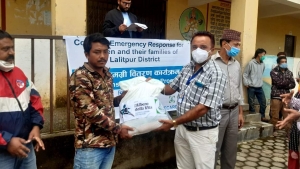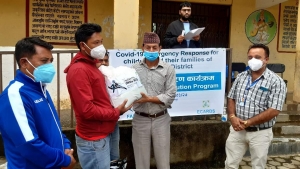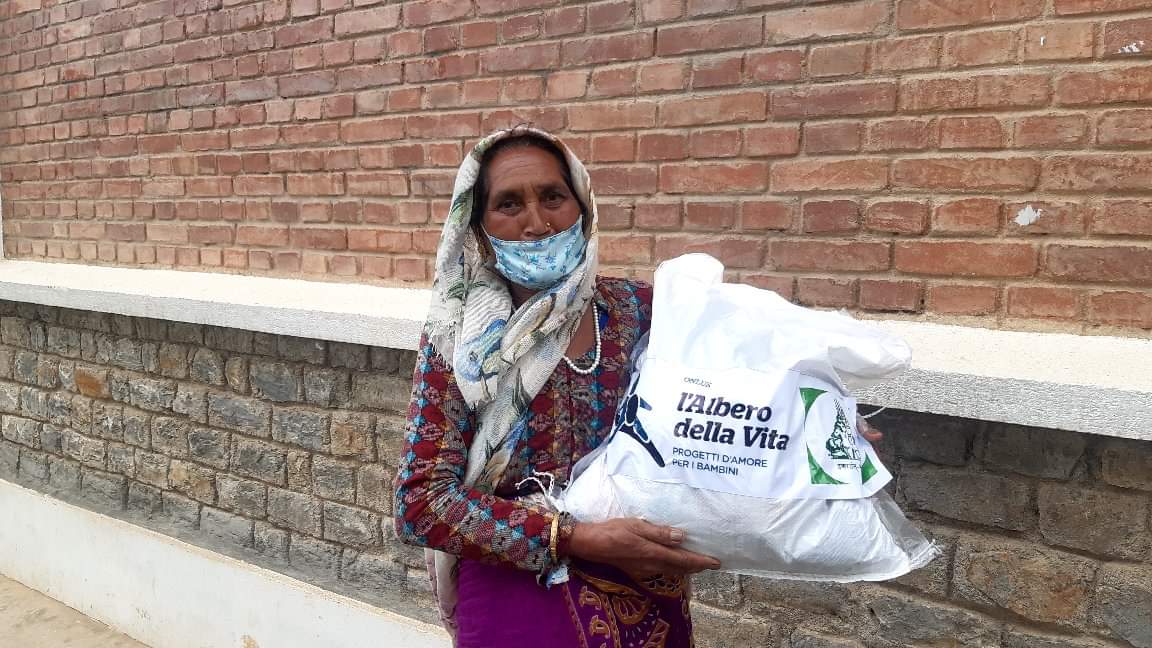FADV implemented the COVID-19 Emergency Response Project which supported 5269 beneficiaries from 2491 households from six wards namely, Asrang, Gimdi, Ikudol, Bukhel, Shanku, and Mailta of Lalitpur District in Nepal. The project was implemented along with the implementing partner ECARDS Nepal.
The objective of the initiative was to ensure protection by strengthening the existing community-based health system, increased access to food/ cash to the neediest, and promoting wash awareness on Covid-19. The primary activities are:
Strengthening existing community-based health system
Nepal having the weakest Health system in comparison to other countries of Europe and Asia was in need to strengthen the existing health system to fight against the COVID-19 pandemic. Hence, FADV implemented this project which was in line with the Government Policy Framework on COVID-19, with due approval of the Social Welfare Council.
FADV provided medical equipment/materials to fill the gap to respond against the COVID-19 impact. This was planned in coordination with local authorities, especially the rural municipalities and the health departments at the District level. PPE (Personal Protective Equipment), masks, hand sanitizers, gloves, etc. were provided to six government health posts in six wards to protect the frontline workers (Doctors/Paramedics) while treating positive cases.


Food security to 600 vulnerable children and their families
Nutritional Food kit was provided to 100 children from each ward in coordination with the local authorities which was in-line with the food standard and guidelines issued by the Ministry of Finance along with the policy framework of the Social Welfare Committee.
Make people aware of good practices
To protect the community from COVID-19 infection, awareness generation is one of the important initiatives. Awareness generation camps were organized by FADV to demonstrate good practices and hygiene kits were distributed among 600 households to ensure self-hygiene including mask, sanitizer, soap, toothpaste, and brush. 12 hand washing units were installed in six wards to promote frequent hand wash to prevent the transmission of COVID-19.

